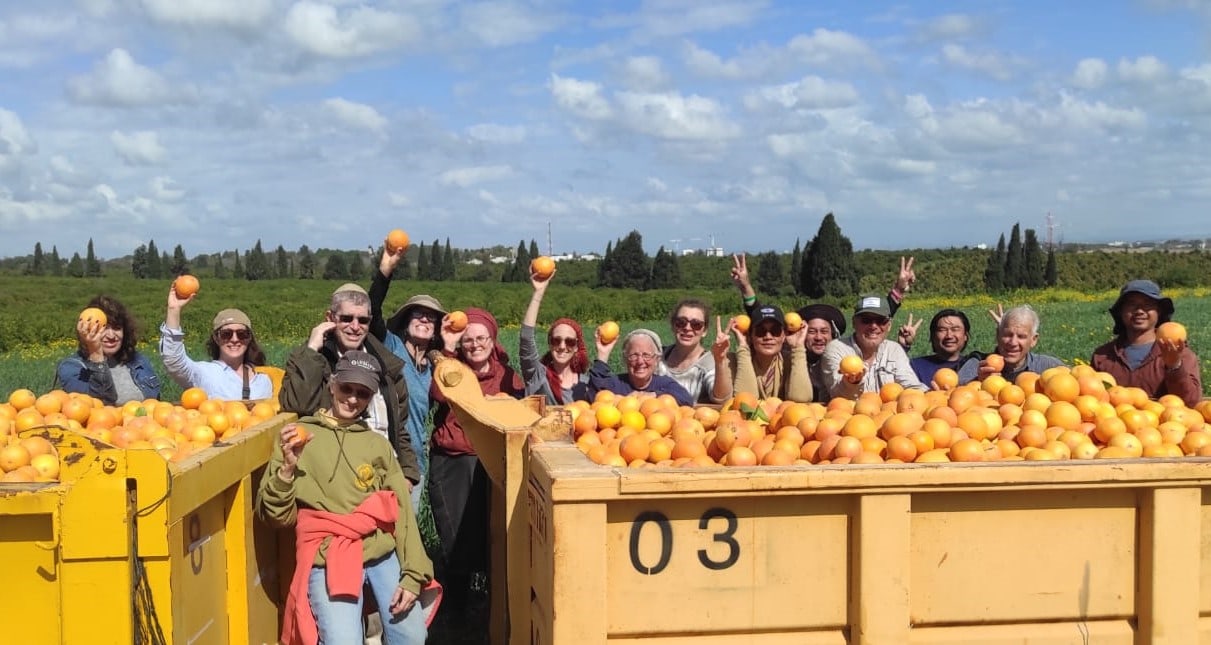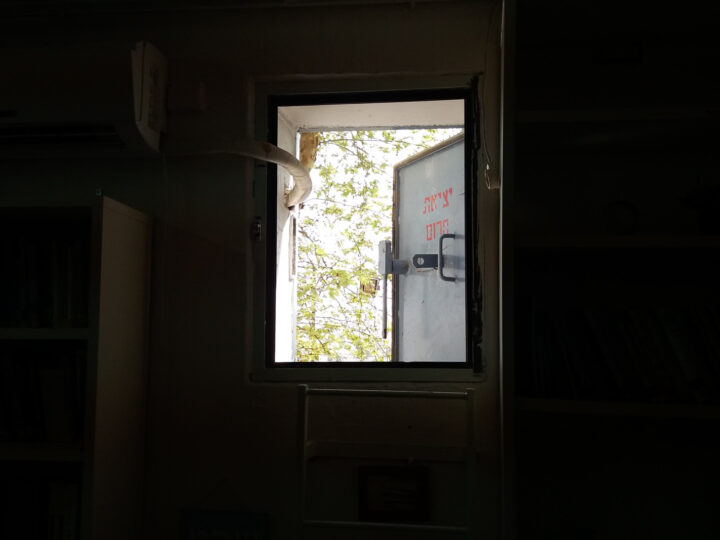When plucking grapefruits off a tree laden with heavy fruit, you get bonked on the head every now and then.
That’s one lesson I’ve learned while volunteering on farms near the Gaza border.
Before October 7, these farms supplied 70 percent of Israel’s fresh produce as well as produce for export.
Now they are struggling to survive. Hamas terrorists killed, kidnapped or scared off most of the foreign farmworkers and destroyed or stole expensive agricultural equipment and infrastructure. Aside from equipment, the attacks caused approximately $500 million of lost farm income.
Injury by grapefruit is a ridiculously minor concern in this volatile part of the country. Yet Israelis and tourists are going down there to assure that at least some of the fruit will reach the market.
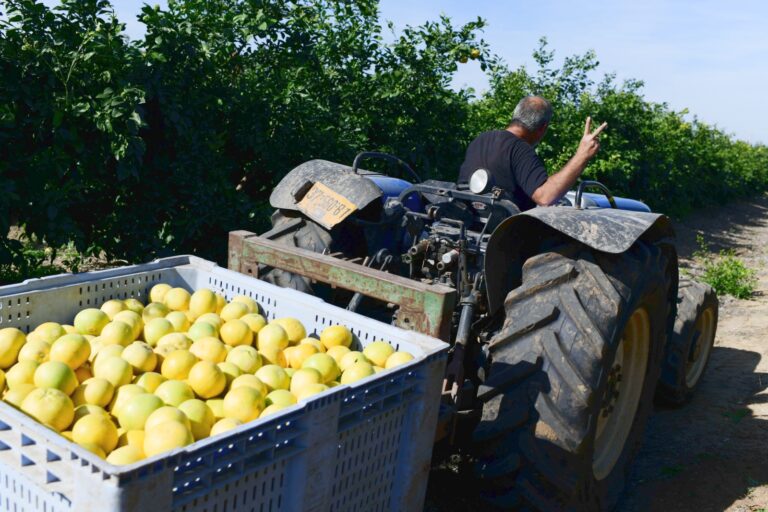
Despite the destruction still clearly evident at these beautiful farms, and despite some deliberately burned agricultural fields, the fruit trees are oblivious to the violence that marred Israel’s blooming Negev Desert.
The fruit grows, and grows, and grows. Whatever isn’t picked and packed will rot on the trees and vines.
Leket Israel, the country’s nonprofit food-rescue organization, is one of several organizations that matches volunteers to farms, sending a bus twice a week to my city just outside Jerusalem.
On March 4, the second day of my retirement from ISRAEL21c, I boarded that bus with my neighbor, Judy, at the crack of dawn. We picked up more volunteers in northern Jerusalem before heading down to Kibbutz Nir Am.
Buckets and ladders
Nir Am was the scene of a heroic act on October 7.
When the security coordinator, Inbal Rabin Lieberman, was alerted to the infiltration of the kibbutz’s agricultural fields, she shut down the electricity so the terrorists couldn’t get through the gate to the residential area. She and her uncle distributed weapons to other members of the security squad and made sure residents were in their safe rooms.
The squad killed the Hamas terrorists, who’d murdered eight Thai and Gazan farmhands (yes, their own countrymen) and destroyed a chicken coop.
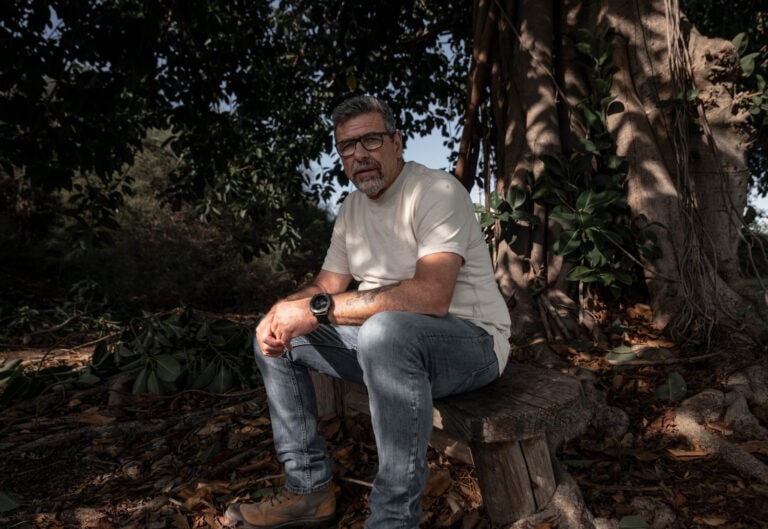
A few Thai workers have returned but not nearly enough, said Inbal Lieberman’s father, Ofer, the farmer who met us at Nir Am. He is among a handful of residents working there each day and sheltering in Tel Aviv hotels at night.
Ofer handed us work gloves and orange buckets and pointed us toward the rows of trees.
Picking grapefruits is hard! You have to reach through gnarly branches that can scratch you and snatch off your hat. To reach the higher branches, you must stand on buckets or ladders.
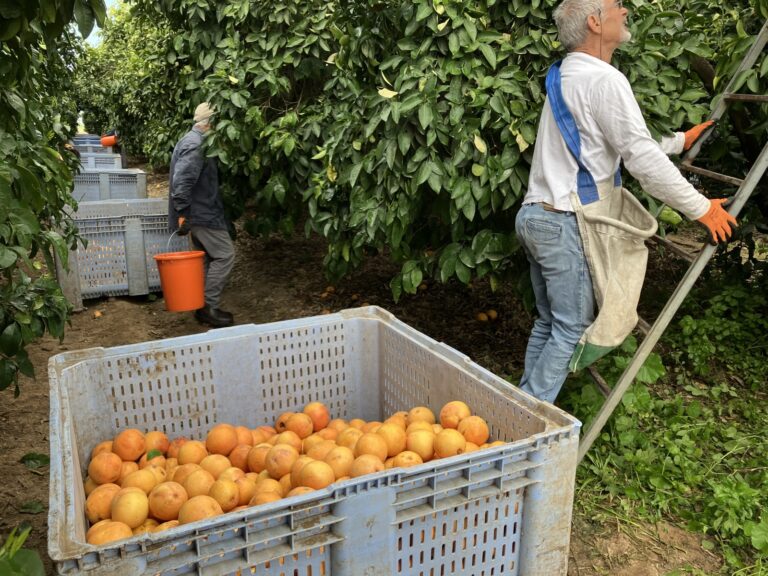
Then you lug the full buckets to collection bins. Thai workers transport the filled bins on forklift trucks and dump the pickings into large containers for weighing.
We 24 volunteers – including a family from Arizona, a woman from Switzerland, a woman from Australia and assorted Israelis speaking Hebrew, English, or Russian — picked 16 tons in under five hours. Everyone got a few fruits to take home.
We were tired, caked with dirt, and filled with a satisfying sense of accomplishment.
Clipping clementines
The next week, the Leket bus took us to the clementine fields of Moshav Ohad.
Thin-skinned clementines can’t be pulled off the tree like grapefruits. The foreman showed us how to clip them at the stem.
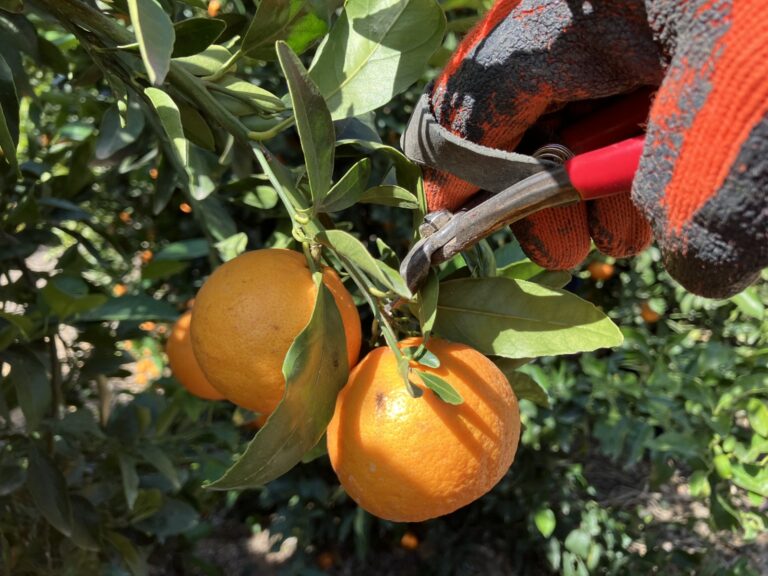
You have to pay attention to do it properly, which is one reason we barely noticed the booms from Gaza filling the air every few minutes.
The other reason is the music some of the volunteers choose to play on their phones as they work. Depending where you were picking, you might hear Abba’s greatest hits or a medley of Israeli classics.
Sitting on the ground or reaching up to clip clementines – a variety developed in Israel to be exceptionally sweet and relatively pit-free — can be a solitary chore or you can fill your tarmil (a deep burlap bag slung over a shoulder) in tandem with others.
Next to the row of trees where the secular farm manager was working with a religious rabbi’s wife, I was clipping and lugging with an American-born, non-Jewish mom from Tel Aviv. She said the current situation makes her feel more connected than ever to her adopted country.
I have been surprised to see that volunteers range from teens to seniors. Schools and companies send groups. People on furlough due to the war — like my friends Susie and Esti, both tour guides – often devote several days a week to farms across Israel, not only in the south.
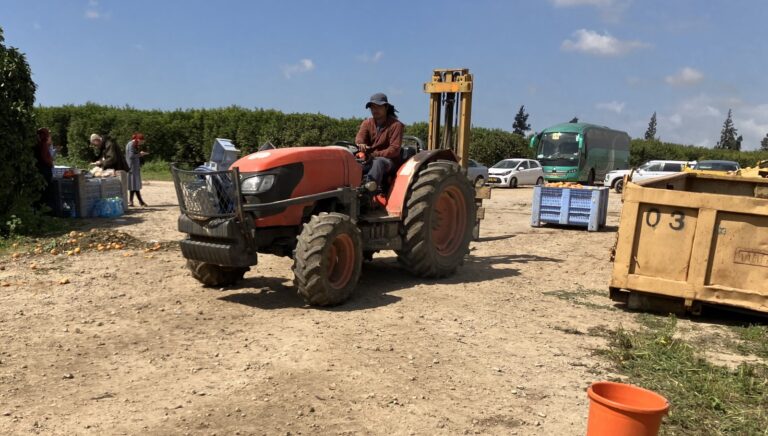
Retirees are an obvious source of labor, and they work rigorously in the orchards. A man in his 50s told me that he when he called his parents – who just celebrated their 60th wedding anniversary – to say he was picking fruit on a farm near Gaza, they said, “That’s funny, so are we!”
Anyone willing to lend a hand in Israel during these difficult days is warmly welcomed. To read more about farm volunteering and many other volunteer opportunities, please click here.




